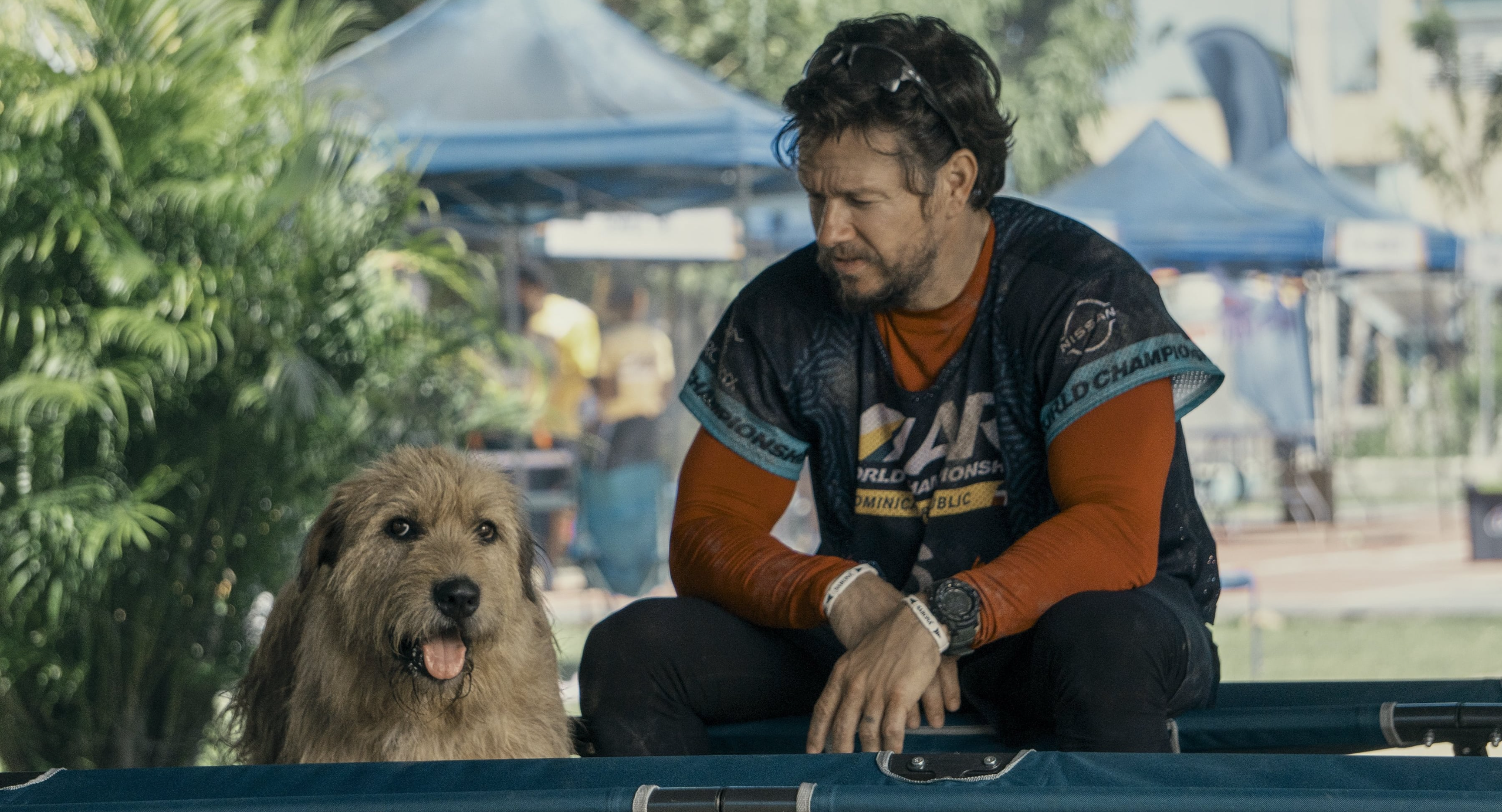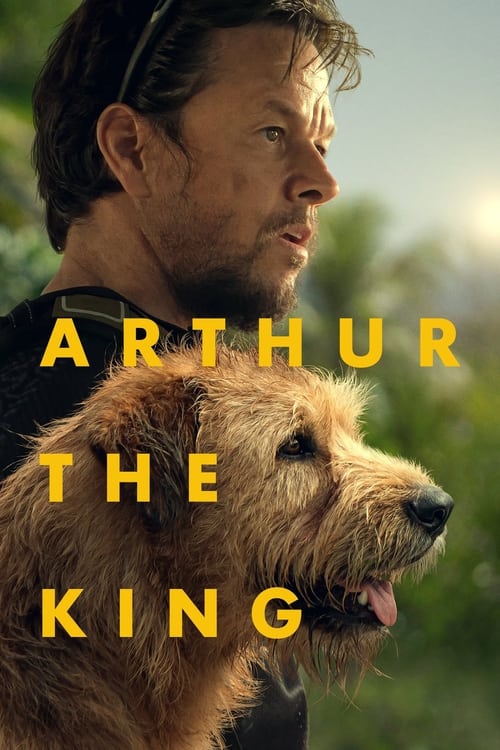Arthur the King – Film Review
Published March 17, 2024

Arthur the King, a film directed by Simon Cellan Jones, graces the silver screen as an attempt to weave the heartwarming real-life story of a dog named Arthur and an adventure racing team into a cinematic experience. The movie is inspired by the 2016 non-fiction book Arthur – The Dog Who Crossed the Jungle to Find a Home by Mikael Lindnord, aiming to translate a tale of perseverance and unexpected companionship into a family-friendly adventure narrative. However, despite its promising premise and star-studded cast, including Mark Wahlberg, Simu Liu, and Juliet Rylance, the film only partly succeeds in its mission, leaving audiences with a lukewarm impression.
The plot centers on a group of mountain climbers who embark on an arduous competition through the challenging terrains of the Dominican Republic. Amidst the struggle and camaraderie that defines the core of any adventure race, they encounter a stray dog, who, despite being injured, clings to the team’s leader, played by Mark Wahlberg in the role of Michael Light. Wahlberg’s character, reflective of Lindnord himself, attempts to form a bond with Arthur, fostering an inter-species friendship that serves as the emotional backbone of the narrative.
From a performance standpoint, Wahlberg delivers a serviceable rendition of a seasoned adventure racer, though his connection with Arthur at times feels superficial, lacking the depth that the real-life story likely offered. Simu Liu as Leo provides a semblance of charm and humor to the ensemble, attempting to balance the scales between the drama and the more light-hearted moments of the journey. Juliet Rylance, as Helena Light, brings a commendable performance, although the script offers her little room to shine, leaving her character somewhat in the background. Nathalie Emmanuel‘s portrayal of Olivia rounds out the main cast, delivering a performance that, while earnest, is similarly hindered by the film’s narrative limitations.
Arthur the King attempts to juggle multiple themes — the challenge of the race, the resilience of the human spirit, and the bonds formed under adversity — yet struggles to delve deeply into any of them. The result is a movie that feels episodic, shifting from one scene to the next without fully exploring the emotional or psychological depths of its characters or the dramatic potential of the narrative. The cinematography, while capturing the rugged beauty of the Dominican Republic, occasionally lapses into formulaic shots that fail to elevate the story beyond its surface level.
Furthermore, the film’s pacing feels inconsistent. It races through certain plot points that seem deserving of more attention, while dwelling excessively on others that contribute little to the overall narrative arc. This inconsistency not only disrupts the viewer’s engagement but also diminishes the impact of the story’s more poignant moments, including the burgeoning friendship between Michael and Arthur. The screenplay, penned by Michael Brandt, teeters between trying to pay homage to the inspirational story it’s based on and adhering to the expectations of a commercial adventure film, resulting in a final product that satisfies neither ambition fully.
On a positive note, Arthur the King shines in its portrayal of Arthur himself, bringing the titular character to life with a level of warmth and authenticity that is genuinely touching. The scenes involving the dog are easily the highlight of the film, showcasing a heartfelt connection between animal and human that transcends the spoken word. It’s in these moments that the film almost reaches its aspirational heights, reminding audiences of the powerful bond that can form against the odds.
However, the decision to prioritize scenic vistas and race dynamics over the development of this core relationship ultimately serves to the film’s detriment. What could have been a deeply moving exploration of friendship and mutual survival in the face of daunting challenges is instead relegated to a secondary theme, making the film feel like a missed opportunity.
Arthur the King is a film that embarks with promise and potential but fails to fully chart its course. While it has its moments of genuine affection and breathtaking scenery, it falls short of delivering a compelling narrative experience. For those seeking an adventure film that mildly entertains without requiring much emotional investment, it may prove satisfactory. However, for viewers hoping for a more profound cinematic journey into the essence of human-animal bonds, resilience, and triumph, this film might not cross the finish line. Despite its admirable attempt to bring a remarkable true story to life, Arthur the King remains a middling affair, resonating as a tale not fully told, much like a race not quite won.
